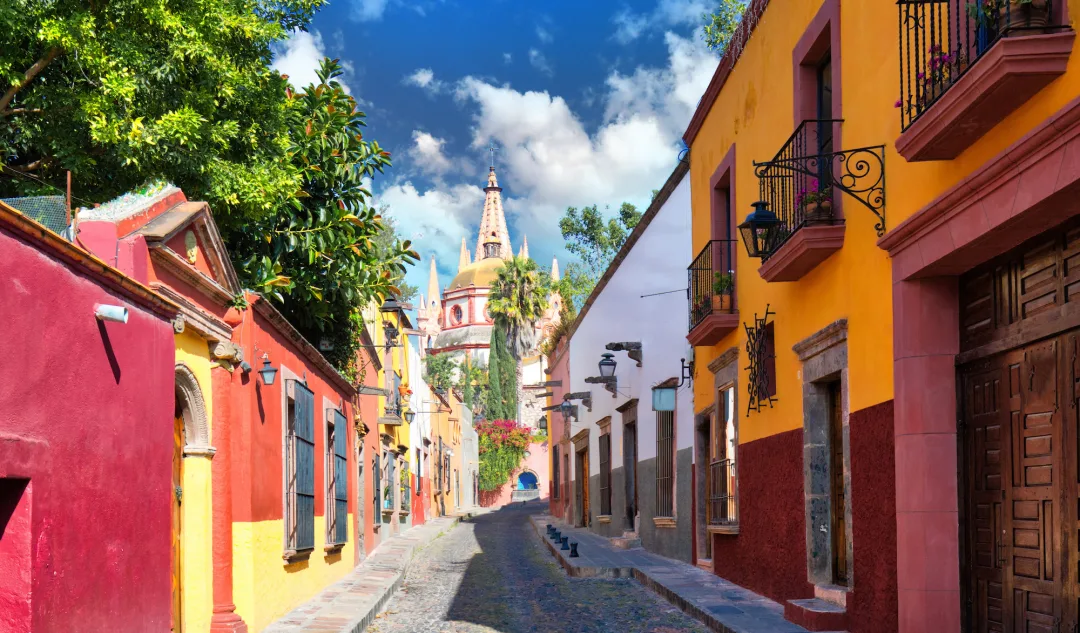San Miguel de Allende is a highly desirable location for both local and international buyers due to its colonial charm, cultural richness, and a strong expat community. If you’re looking to sell property in this sought-after location, this guide will help you understand the process, legal requirements, and strategies to successfully sell your property in San Miguel de Allende.
1. Understand the Local Real Estate Market
Before listing your property for sale, it’s important to understand the real estate market trends in San Miguel de Allende. Demand is high, especially for well-maintained colonial homes and modern villas. However, market conditions can vary based on the season, economic factors, and the location of your property.
- Popular Areas:
- Centro Histórico: Colonial homes in the heart of the city are the most valuable.
- San Antonio and Guadiana: Popular neighborhoods with a mix of locals and expats.
- Atascadero: Known for spacious homes with beautiful views.
- Los Frailes: Offers more suburban-style homes with larger lots.
2. Preparing Your Property for Sale
To attract potential buyers, it’s essential to present your property in its best condition. Here are steps to prepare:
- Repairs and Maintenance: Fix any issues such as leaking roofs, broken fixtures, or outdated systems. Well-maintained homes sell faster and at higher prices.
- Cleaning and Staging: Thoroughly clean the property and remove personal items. Consider staging your home to highlight its best features.
- Curb Appeal: Make sure the exterior of your home looks inviting. This includes landscaping, painting, and maintaining outdoor areas.
- Professional Photos: Invest in high-quality photography, as most buyers will first encounter your property online.
3. Pricing Your Property
Setting the right price is key to a successful sale. Overpricing can lead to your property sitting on the market for too long, while underpricing means you could miss out on potential profits.
- Comparative Market Analysis (CMA): Work with a real estate agent to conduct a CMA, comparing your property to similar homes recently sold in your area. This will give you a realistic price range.
- Understand Market Trends: Stay informed about current real estate trends in San Miguel de Allende. Is it a buyer’s or seller’s market? This will influence your pricing strategy.
4. Hiring a Real Estate Agent
While it’s possible to sell property on your own, working with a licensed real estate agent in San Miguel de Allende can make the process smoother and more efficient. Agents have access to a wider pool of buyers, market expertise, and experience with the legal complexities of selling property.
- Choosing an Agent: Look for an agent with experience in selling homes in your neighborhood and someone who has a proven track record of sales.
- Commission Rates: In San Miguel, real estate agents typically charge between 5-7% of the sale price as a commission. This fee is usually paid by the seller, but this can vary depending on the agreement.
5. Legal Requirements for Selling Property in Mexico
Selling property in Mexico involves several legal steps, and it’s important to ensure all paperwork is in order to avoid complications.
- Required Documents:
- Escritura Pública (Deed): The deed is the most important document proving ownership. If you don’t have an up-to-date copy, you can request one from the Public Registry of Property.
- Proof of No Liens or Debts: You will need to provide proof that there are no outstanding liens, mortgages, or unpaid property taxes.
- Identification: Valid identification (passport or residency card) will be required during the transaction.
- Notary Public (Notario Público): In Mexico, a Notario Público is a licensed legal professional who oversees the transfer of property. They ensure all legal requirements are met and the transaction is properly recorded with the government.
- Tax Identification Number (RFC): If you are a foreigner, you may need to register for an RFC (Registro Federal de Contribuyentes) with Mexico’s tax authority. Your real estate agent or lawyer can help with this process.
6. Taxes and Costs Associated with Selling
Several costs are associated with selling property in San Miguel de Allende, and it’s important to budget for them to avoid surprises.
- Capital Gains Tax (ISR): When selling property in Mexico, you may be liable for Impuesto Sobre la Renta (ISR), which is Mexico’s capital gains tax. The rate can be as high as 35% for non-residents, but there are exemptions available if the property is your primary residence or if you’ve made improvements that increase the value.To reduce your tax liability:
- Provide receipts for any capital improvements to the property (construction, renovations).
- Demonstrate the property was your primary residence if you lived there for at least three years.
- Agent Commissions: Real estate agents typically charge a commission of 5-7% of the sale price, which is usually paid by the seller.
- Closing Costs: Notary fees, legal fees, and other closing costs typically add up to 3-6% of the sale price. These fees are usually shared between the buyer and the seller, but this can vary by agreement.
7. Steps in the Selling Process
- Listing the Property: Once your property is ready and you’ve set a price, your real estate agent will list the property. Make sure the listing includes high-quality photos, a detailed description, and all necessary information about the property.
- Receiving Offers: When a buyer makes an offer, your agent will present it to you. You can accept, reject, or negotiate. Offers in Mexico are usually made in writing and include terms such as price, closing costs, and a timeline for the sale.
- Signing the Sales Agreement: Once you accept an offer, a Promesa de Compra (Sales Agreement) is signed. This contract will outline the terms of the sale, including price, deposit amount, and the expected closing date.
- Title Transfer and Notary Process: The final step in selling your property involves the Notario Público, who will oversee the transfer of title from you to the buyer. The buyer will pay the remaining balance, and both parties will sign the Escritura Pública (deed).
- Registration: The sale is registered with the Public Registry of Property, making the transfer official.
8. Special Considerations for Foreign Sellers
If you’re a foreigner selling property in Mexico, you need to be aware of additional considerations:
- Fideicomiso (Trust) Cancellation: If you purchased property within Mexico’s restricted zones (near the coast or borders) through a bank trust (fideicomiso), you will need to formally cancel the trust as part of the sale.
- Repatriating Funds: When selling property as a foreigner, it’s important to understand how to repatriate the funds to your home country. Check with your lawyer or financial advisor for tax implications in both Mexico and your home country.
9. Finalizing the Sale
Once the sale is complete and the escritura pública is signed, you’ll receive the final payment for your property. The buyer becomes the legal owner, and the sale is officially recorded with the Public Registry of Property.
After the sale, ensure that you have accounted for all the necessary taxes, commissions, and fees, and that you’ve canceled any ongoing utility services or homeowner associations in your name.
Conclusion
Selling property in San Miguel de Allende requires a solid understanding of the local real estate market, legal processes, and taxes. By following this guide, hiring a qualified real estate agent and legal counsel, and being prepared for all the steps involved, you can ensure a smooth and successful sale.




